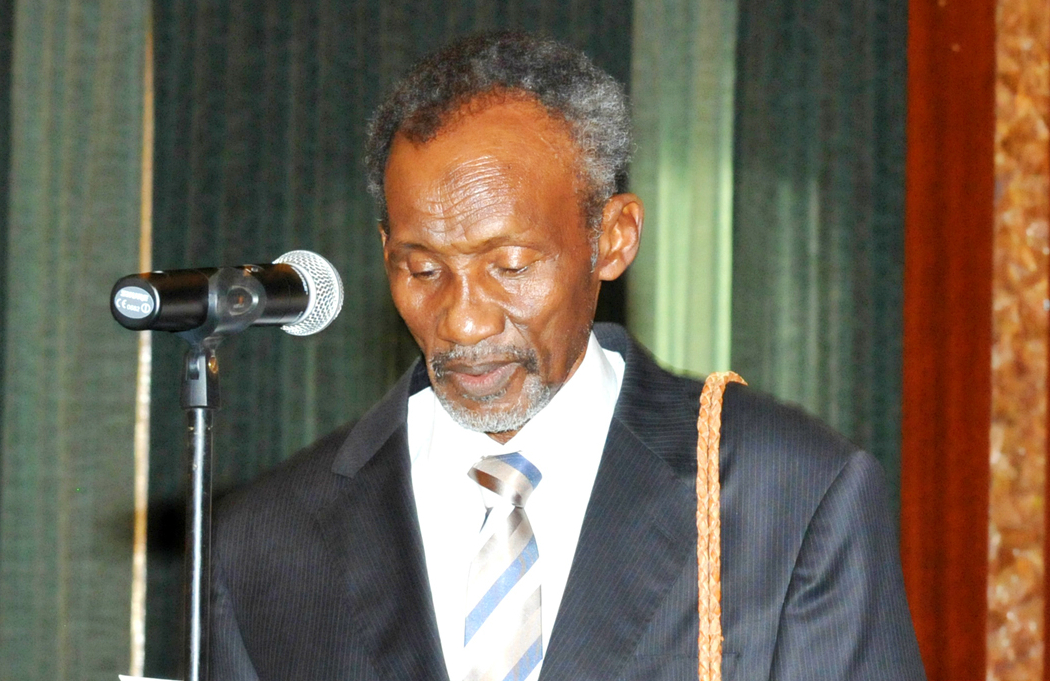The Chief Justice of Nigeria (CJN), Justice Mahmud Mohammed, has blamed the federal and state governments for corruption on the bench.
He stated this after two Supreme Court Justices facing corruption allegations, Inyang Okoro and Sylvester Ngwuta, stepped down from adjudicating over cases pending conclusion of investigations.
Okoro and Ngwuta, alongside five other judges, were arrested in sting operations on October 7 and 8 by the Department of State Services (DSS) on allegations of bribery and corruption.
While the duo of Okoro and Ngwuta voluntarily recused themselves from judicial functions since their homes were raided, others are still at their duty posts adjudicating on cases before them.
However, Justice Mahmoud exonerated the judiciary and its highest organ, the National Judicial Council (NJC), from any guilt as he said the third arm of government should not be blamed for the endemic corrupt practices on the bench.
Instead, he said blame should be put on the executive, as “the failure on the part of the executive arm of government to act upon recommendations by the NJC cannot be blamed upon the NJC.”
CJN said this in a letter dated October 26 and addressed to a group called the Socio-Economic Rights and Accountability Project (SERAP), that had asked the NJC to take over the alleged corruption case against the embattled judges from the DSS.
The letter, with reference No. CJN/Gen/MISC/ A37/Vol.XXI/8 and signed by CJN’s Senior Special Assistant, H. S. Sa’eed, was in response to SERAP’s request to Justice Mohammed, asking him to “take over from the DSS the cases of all the seven judges released by the DSS and refer the cases of those judges to anti-corruption agencies for conclusion of investigation and prompt prosecution.”
CJN said: “While restating the willingness of the NJC to act upon any petition as well as commitment of the Nigerian judiciary to the fight against corruption, his Lordship opines that any significant involvement in the fight against corruption will be upon a similar commitment of the prosecutorial agencies to actively prosecute their cases expeditiously when information about same is received.
“It is necessary to restate that the NJC is a creation of the 1999 Constitution of Nigeria (as amended) being established under Section 153 with its mandate clearly set out in Paragraph 21, Part One of the Third Schedule to the Constitution.
“This provision clearly stipulates at Paragraph 21(b) and (d) that the Council may only ‘recommend’ to the President and the Governors, the removal from office of judicial officers and to exercise disciplinary control over such judicial officers, which in effect is the extent of its power to discipline.
“Hence, the Council cannot, suo moto dismiss any judicial officer.
“The NJC can also neither ‘hand over’ corrupt judges to law enforcement agencies for prosecution nor recover proceeds of corruption, as you have suggested, it can merely recommend to act upon its findings as it has always done.
“However, in exercise of its constitutional mandate, the NJC has enacted the Judicial Discipline Regulations, 2014 in order to ensure that petitions are received, investigated and addressed as appropriate. As SERAP’s own report attests, 64 judicial officers have been disciplined within five years even preceding the institution of the new guidelines. Any failure on the part of the executive arm of government to act upon such recommendations cannot, therefore, be blamed upon the NJC.
“To be sure, every citizen of Nigeria inclusive of judicial officers, are entitled to the protection of the law and a key provision of the Constitution is the presumption of innocence, as enshrined in Section 36(5) of the Constitution (as amended).
I must also remind us that the seven judges, like all other persons, are entitled to a fair hearing as stipulated in Section 36 of the Constitution. As such, it would be presumptive and, indeed, pre-emptive to sanction the said judges without exhausting the proper procedure for their removal.”

